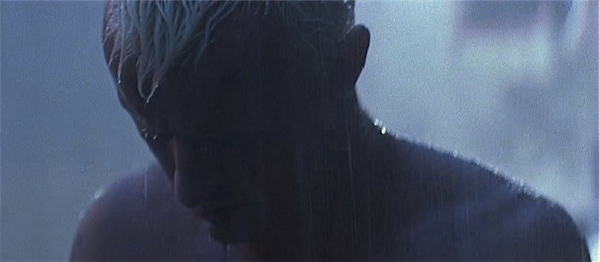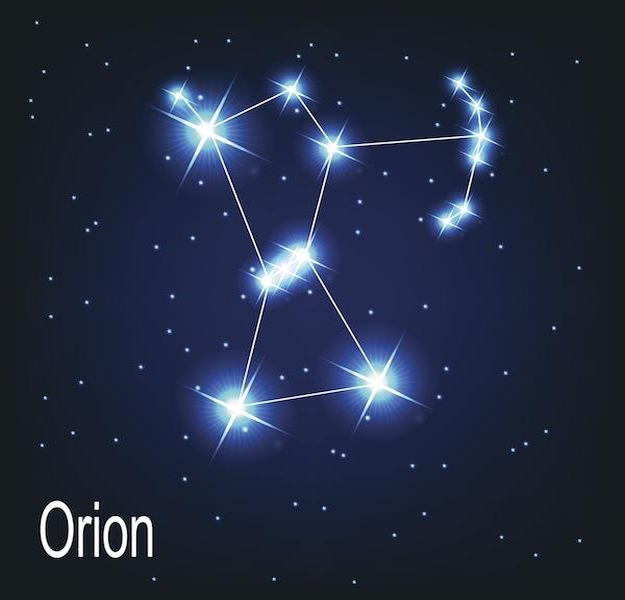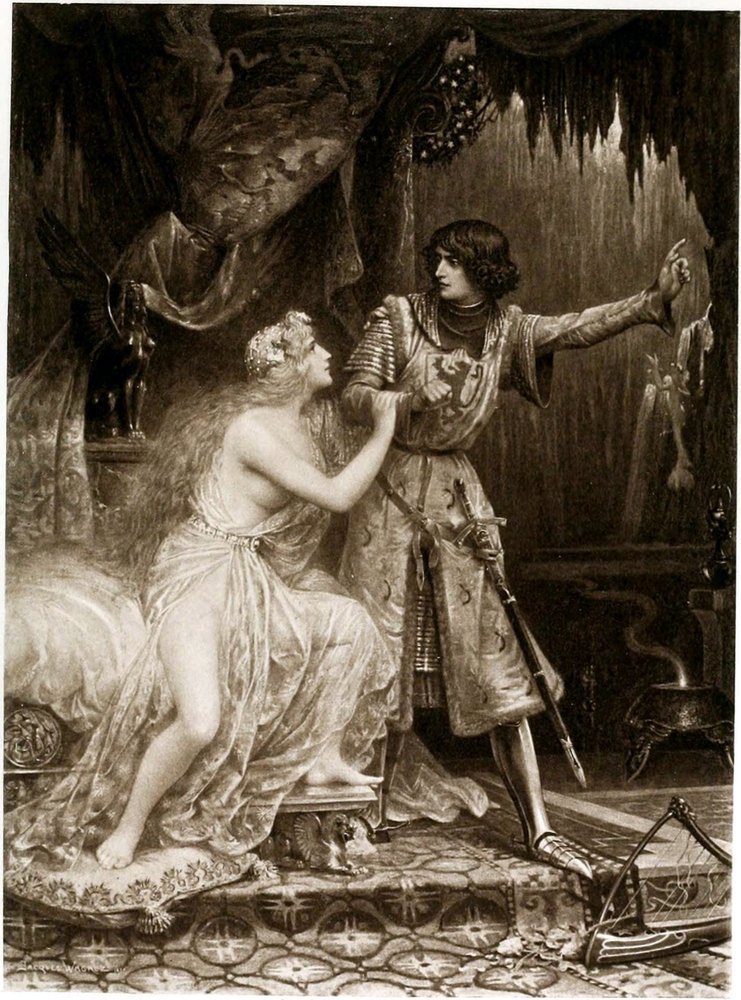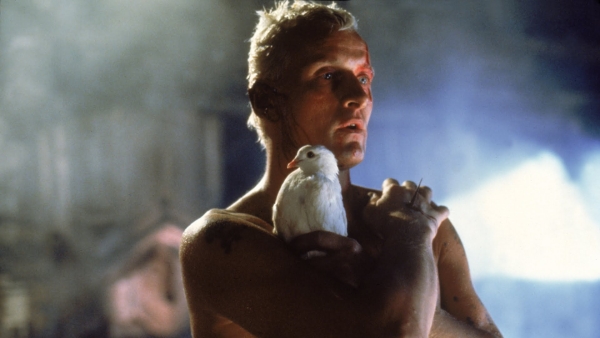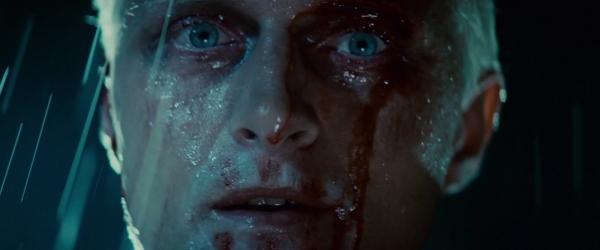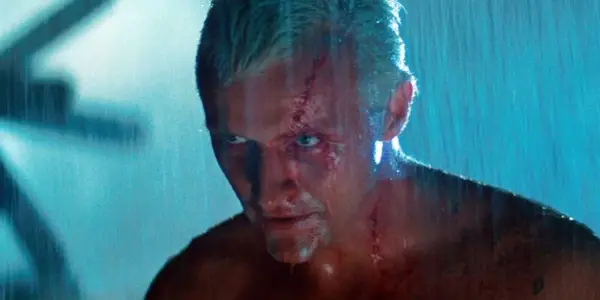 |
| Blade Runner (1982) – Roy Batty (Rutger Hauer) |
Find out a few things you probably didn’t know about Rutger Hauer’s classic death speech in Blade Runner.
Rutger Hauer passed away July 19, 2019, at age 75. Rutger Oelsen Hauer was born January 24, 1944, in Breukelen, Netherlands. Hauer acted in films and television for decades and was made a knight in the “Order of the Netherlands Lion” in 2013. His science-fiction work is legendary from low-budget films like Split Second (1992) to blockbusters like Batman Begins. But his work on Blade Runner is what most people remember.
Watch the scene below
“Tears in rain” (also known as the “C-Beams Speech”) is one of the most moving speeches in film history. It appears in the 1982 neo-noir science fiction film Blade Runner directed by Ridley Scott, starring Harrison Ford, Rutger Hauer, Sean Young, and Edward James Olmos. The film is loosely adapted from the 1968 novel Do Androids Dream of Electric Sheep? by the late great Philip K. Dick.
The film is set in the future and synthetic humans, known as “replicants”, are bio-engineered by the Tyrell Corporation to work on off-world colonies. A group of renegade Nexus-6 replicants, led by Roy Batty (Rutger Hauer) make it to Earth and Rick Deckard (Harrison Ford) grudgingly agrees to hunt them down.
The replicants are dying and trying to find a way to extend the lifespan engineered into them. Batty saves Deckard’s life but his body is breaking down and dying. During a heavy downpour, Batty delivers the lines for “Tears in the Rain” moments before his death.
That monologue has been called “a great speech in science fiction cinema” and it’s beloved for decades.
1. Rutger Rewrote the Speech Himself
In the film, Batty gives the following lines reflecting on his life and the loss of memories and experiences in death.
I’ve seen things you people wouldn’t believe.
Attack ships on fire off the shoulder of Orion.
I watched C-beams glitter in the dark near the Tannhäuser Gate.
All those moments will be lost in time, like tears in rain. Time to die.
In the original screenplay draft the speech written by Hampton Fancher and David Peoples reads this way:
I’ve seen things… seen things you little people wouldn’t believe.
Attack ships on fire off the shoulder of Orion bright as magnesium… I rode on the back decks of a blinker and watched C-beams glitter in the dark near the Tannhäuser Gate.
All those moments… they’ll be gone.
The shooting script reads this way:
I’ve seen things… seen things you little people wouldn’t believe.
Attack ships on fire off the shoulder of Orion bright as magnesium… I rode on the back decks of a blinker and watched C-beams glitter in the dark near the Tannhäuser Gate.
All those moments… they’ll be gone.
2. Why Rutger Hauer Changed the Speech
Rutger Hauer was a classically trained actor. When he read the script he felt it needed a harder edge. Hauer called it “opera talk” and “hi-tech speech” and didn’t feel it fit with the rest of the film. So the night before filming he “put a knife in it”. He didn’t tell Ridley Scott until the next day.
Hauer later told Dan Jolin for the book The Ridley Scott Experience those final lines showed that Roy Batty wanted to “make his mark on existence … the replicant in the final scene, by dying, shows Deckard what a real man is made of”.
3. There’s No Speech in the Original Story
In the original novel by Philip K. Dick Baty (not Batty like the movie) is shot and doesn’t give a speech.
He shot Roy Baty; the big man’s corpse lashed about, toppled like an overstacked
collection of separate, brittle entities; it smashed into the kitchen table and carried dishes
and flatware down with it. Reflex circuits in the corpse made it twitch and flutter, but it had died; Rick ignored it, not seeing it and not seeing that of Irmgard Baty by the front door. I got the last one, Rick realized. Six today; almost a record. And now it’s over and I can go home, back to Iran and the goat. And we’ll have enough money, for once.
But his character in the movie needed to say something so the writers changed the death and added the lines.
4. Battle in Space
Batty says he’s seen spaceship battle “off the shoulder of Orion”. He’s a combat model designed for off-world military service. He probably had many memories of space but this one stuck with him.
In the world of Blade Runner, the war between the replicants and humans was large and stretched across many stars. This was a reference to a battle that happened in the constellation of Orion which looks like an archer with a bow.
5. The Speech References an Opera
The name “Tannhauser Gate” was never explained in the film or book. It’s possibly a reference to Richard Wagner’s 1845 operatic adaptation of the legend of the medieval German knight and poet Tannhäuser. It’s called Tannhäuser und der Sängerkrieg auf Wartburg, (also “Tannhäuser and the Minnesingers’ Contest at Wartburg”)
The story of the opera centers on themes of sacred and profane love, and redemption through love. Joanne Taylor also suggested Baty imagined himself as Tannhäuser, “a character who has fallen from grace with men and with God” and has no control over his fate.
In one of the film’s deleted scenes, the battle and Tannhäuser Gate are shown on-screen.
6. Memories Are Precious to Batty
Batty spent most of the film trying to kill Deckard, but when he and Rick are alone he changes his mind. As Deckard hangs from a ledge and is about to slip Batty saves him. Why? He’s a trained killer. Why would he save Ford’s character?
Rutger Hauer’s Blade Runner character knows he’s dying. He realizes if Rick dies there will be no one left to remember him and his final words. It’s possible he saves Deckard so someone will share his final soliloquy. That’s why he reflects with the words “all those… moments… will be lost in time.”
7. The Rain
As they stand in the rain, he’s reflecting about what impact his life will have. He says “Like tears… in… rain”. Tears are mainly made of water and electrolytes (sodium, potassium, chloride, bicarbonate, magnesium, and calcium). In that downpour, tears would have very little impact or add much value.
Batty says these words reflecting on how fragile human life is. Will one person’s life have an impact on billions of people and over centuries of human history?
8. Time to Die
“I scratched all the dialogue and I kept two lines that seemed to make sense because they were related to a few things in the script,” Hauer said in his biography All Those Moments. “And then I was just looking for one line that would kind of, in a tiny nutshell…you would feel what Roy feels – which of course is impossible. It didn’t come from me, it came from the poet in me.
And there was a poet in Roy which doesn’t make sense but there was, right, in the program. By coming up with that one line to conclude Roy’s quest, I was also anchoring myself as an actor in my own insecure way. And for an audience to carry that for thirty years with such love – I mean it cannot get any better.”
Those three words “time to die” summed up everything Rutger Hauer believed his character felt.
We lost a treasure in Rutger Hauer. He made us feel, laugh, cry and everything in between. You made us see things we could believe.
What do you think of Rutger Hauer’s monologue in Balde Runner? Is there a fact we missed? Let us know in the comments below!
Note: Some links may lead to an approved affiliate and small proceeds from the sale go to support the blog. Thank you!
If you enjoyed this, then please use the buttons below to tell your
friends about this post! Follow us! Email
| RSS
| Twitter | Facebook


